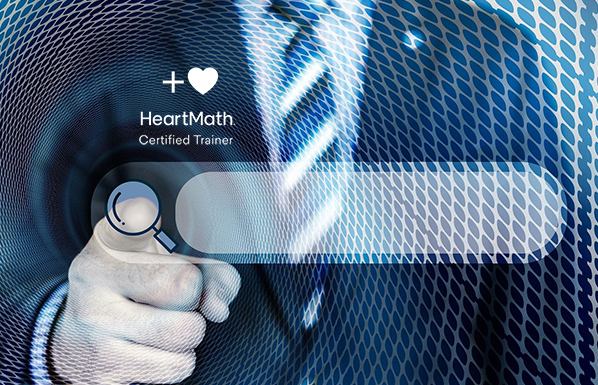Our coaching and coach training is grounded in solid research and practice. We bring to the table our 30+ years of research and practice in the craft and art of educational coaching. We know how important it is for coaches to work based on extensive theoretical knowledge and experiential know-how. There is no “one size fits all” when it comes to coaching. Every coaching situation is unique, and coaches must have the knowledge, skill, and resilience to adapt what they do to meet their coachees’ needs. This is how we coach our clients, and we know how to teach others to do it in their own unique way as well. Coaching is a valuable transformative resource and pathway for educators who want to practice and experience their work in new and exciting ways. We present here a small sampling of recent publications that support educational coaching and leadership development. We will add to this list over time.
St. Martin, S. (2005). The Garden of the Heart: HeartMath—The New Biotechnology for Treating Children with ADD/ADHD and Arrhythmia.
HeartMath Research Center, Institute of HeartMath, Publication No. 05-017. Boulder Creek, CA.
This article gives a practitioner’s account of her success using HeartMath’s techniques and emWave® PC/Mac heart rhythm coherence monitoring system in treating children with AD/HD. Dr. St. Martin’s report describes how she helped nearly 400 children.
Keller, J., Ruthruff, E., Keller, P., Hoy, R., Gaspelin, N., & Bertolini, K. (2017): “Your Brain Becomes a Rainbow”: Perceptions and Traits of 4th-Graders in a School-Based Mindfulness Intervention, Journal of Research in Childhood Education
https://DOI: 10.1080/02568543.2017.1343212
Although mindfulness, or the self-regulation of attention, has been found beneficial in reducing teacher stress and burnout and in increasing students’ cognitive and emotional regulatory skills, no study has explored students’ attitudes toward meditation practices in depth. This mixed-methods study reports results from a randomized, controlled trial of a 10-week mindfulness intervention in a public-school setting with 28 4th-grade students from lower income and ethnic minority backgrounds. Over the course of the intervention, students were asked to respond to writing and drawing prompts about their feelings and attitudes toward mindfulness. At the end of the intervention, the experimental teacher rated students on how often they had practiced mindfulness breathing during class. Qualitative analysis of journal entries yielded personality traits of students who were receptive or resistant to mindfulness training. Practical strategies for identifying and remediating resistant students and for implementing mindfulness interventions in a school setting are discussed
Bradley, R. T., Galvin, P., PhD, Atkinson, M., & Tomasino, D. (2012). Efficacy of an Emotion Self-regulation Program for Promoting Development in Preschool Children. Global Advances in Health and Medicine 2012; 1(1):36-50; www.gahmj.com.
This work reports the results of an evaluation study to assess the efficacy of the Early HeartSmarts (EHS) program in schools of the Salt Lake City, Utah, School District. The EHS program is designed to guide teachers with methods that support young children (3-6 y old) in learning emotion self-regulation and key age-appropriate socioemotional competencies with the goal of facilitating their emotional, social, and cognitive development. Overall, there is compelling evidence of the efficacy of the EHS program in increasing total psychosocial development and each of the 4 development areas measured by the TCCA.
Bradley, R. T., McCraty, R., Atkinson, M., Tomasino, D, Daugherty, A., & Arguelles, L. (2010). Emotion Self-Regulation, Psychophysiological Coherence, and Test Anxiety: Results from an Experiment Using Electrophysiological Measures
Applied Psychophysiological Biofeedback, Springer Science+Business Media, LLC.
This study present a pattern of consistent results showing that: (1) students who received the intervention program appear to have learned how to better self-regulate their emotions and intentionally shift into the psychophysiological coherence state under stressful conditions; and (2) the students most in need of help in managing their stress—the high test anxiety/ low test-performing subgroup—appear to have internalized the benefits of the program’s emotion self-regulation tools, to the extent that they exhibited an emotional profile of significantly reduced negative affect and test anxiety, and a shift to healthier, more coherent baseline pattern of physiological activity. Finally, there is suggestive evidence from the matched-pairs analysis that reduced test anxiety and increased psychophysiological coherence appear to be directly associated with improved test performance.
Vislocky, M. & Leslie, R. P. (2005). Efficacy and Implementation of HeartMath Instruction in College Readiness Program: Improving Students’ Mathematics Performance and Learning
Over four years (2002-2005), HeartMath emotional management training was been offered to Tech Prep students. It is well established that both math courses and math tests can lead to anxiety, and anxiety, in turn, interferes with students’ performance in mathematics. Looking at the average improvement in test points from the COMPASS pre-test and post-test, the following results were obtained: 2002 – 19% average percent increase; 2003 – 15% average percent increase; 2004 – 24% average percent increase; 2005 – 73% average percent increase.
McCraty, R. (2005). Enhancing Emotional, Social, and Academic Learning with Heart Rhythm Coherence Feedback
Biofeedback, Winter 2005. P. 130-134. https://www.heartmath.org/assets/uploads/2015/01/enhancing-emotional-social-academic- learning-heart-rhythm-coherence-feedback.pdf
Heart rhythm coherence biofeedback is an exciting new technology that has broad-based applications in educational contexts for improving emotional, social, and academic competencies. Using this technology to facilitate the learning and practice of positive emotion-focused techniques, students learn to enter a state of psychophysiological coherence—a highly efficient functional mode associated with increased nervous system harmony, enhanced emotional stability, and improved cognitive performance. Classroom-based programs incorporating this intervention have facilitated improvements in emotional health, social behaviors, and academic performance in diverse student populations.
Heartmath Research on Applications in Organizations outside of Education
Barrios-Choplin, B., McCraty, R., Sundram, J. & Atkinson, M. (1999).
The Effect of Employee Self-Management Training on Personal and Organizational Quality
HeartMath Research Center, Institute of HeartMath, Publication No. 99-083. Boulder Creek, CA, 1999.
This research examined the effect of an Inner Quality Management (IQM) training program on 54 employees in the Information Technology Services Division of a state agency which was experiencing change-related turmoil. Measures of personal and organizational quality in the trained employees were compared to those of a 64-member comparison group that had not received the training. After the completion of the training, seven weeks from the initial assessment, the study group reported significant decreases in dimensions of negative affect and stress and significant increases in dimensions of positive affect in relation to the comparison group. Also, perceptions of goal clarity and productivity increased significantly. Implications for individual and organizational wellness are discussed.
McCraty, R. & Atkinson, M. (2012).
Resilience Training Program Reduces Physiological and Psychological Stress in Police Officers
Global Advances in Health; Medicine 2012; 1(5):42-64; www.gahmj.com.
The data suggest that training in resilience building and self-regulation skills could significantly benefit police organizations by improving judgment and decision making and decreasing the frequency of on-the-job driving accidents and the use of excessive force in high-stress situations. Finally, this study highlights the value of 24-hour HRV analysis as a useful screening tool to identify officers who are at increased risk, so that efforts can be made to reverse or prevent the onset of disease in these individuals.
Newsome, M., Pearsall, C., Ryan, T., & Starlin, P. (2014).
Changing Job Satisfaction, Absenteeism, and Healthcare Claims Costs in a Hospital Culture
Volume 3, Number 1 • January 2014 • Supplement 1 Scientific Abstracts on Health and Organizational Outcomes in Healthcare
Investing in HeartMath training and ongoing practice has proven to be a wise decision and continues to be valuable when initiating new concepts in a stressful, changing environment. Sustainability is key to long-term success and true cultural change. Continued employee training of the HeartMath tools and the continued use of the tools enriches the program planning and implementation of new initiatives at Fairfield Medical Center.
Clark, C. M. & Gorton, K.L. (2019), Cognitive Rehearsal, HeartMath, and Simulation: An Intervention to Build Resilience and Address Incivility
Journal of Nursing Education. 2019;58(12):690-697.
BACKGROUND: The detrimental impact of incivility in health care is well documented. Nursing students and new graduate nurses are particularly vulnerable to its effects. Evidence-based civility education strategies are urgently needed to address incivility, which can protect patient safety. CONCLUSION: This intervention provided nursing students with evidence-based tools to build resilience to effectively address incivility in the patient care environment.


